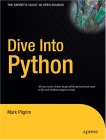I have an extensive molecular biology background but am relatively new to bioinformatics. Would like to extend my computational/programming skills to maximize utility in analyzing sequencing and other high-throughput data, as well as to improve my own marketability.
Many job postings refer to some combination of Perl/Python/C++/Java experience. Any suggestions regarding where to focus effort, particularly in a forward-looking manner?
Thanks for any suggestions.
Many job postings refer to some combination of Perl/Python/C++/Java experience. Any suggestions regarding where to focus effort, particularly in a forward-looking manner?
Thanks for any suggestions.



Comment